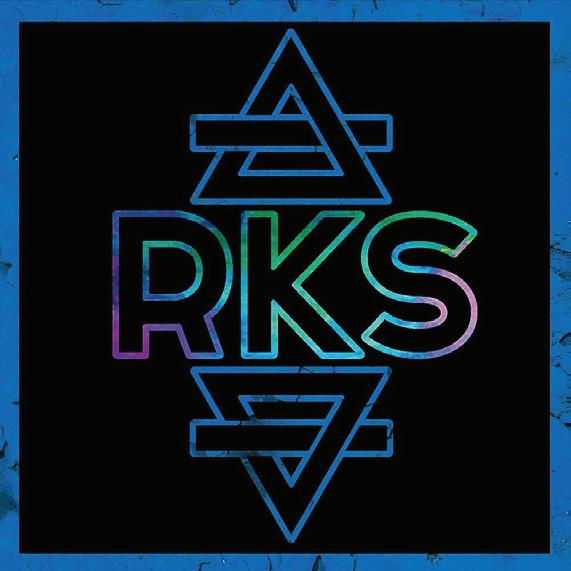NO FIDELITY
NoFi scoops some of Sproncert’s biggest stars!
THE CYVER SPIRITUAL ORDER OF MECHANICAL HEDONISM
DREAD I DRED and papa mbye PLUS! writing from CJ RUFF and JIMMY CARLSON








NoFi scoops some of Sproncert’s biggest stars!
THE CYVER SPIRITUAL ORDER OF MECHANICAL HEDONISM
DREAD I DRED and papa mbye PLUS! writing from CJ RUFF and JIMMY CARLSON







Billy Bratton, CJ Ruff, Jimmy Carlson, Henry Burkhardt (ed.), and Sofia Durdag (ed.) and Stewie Goon

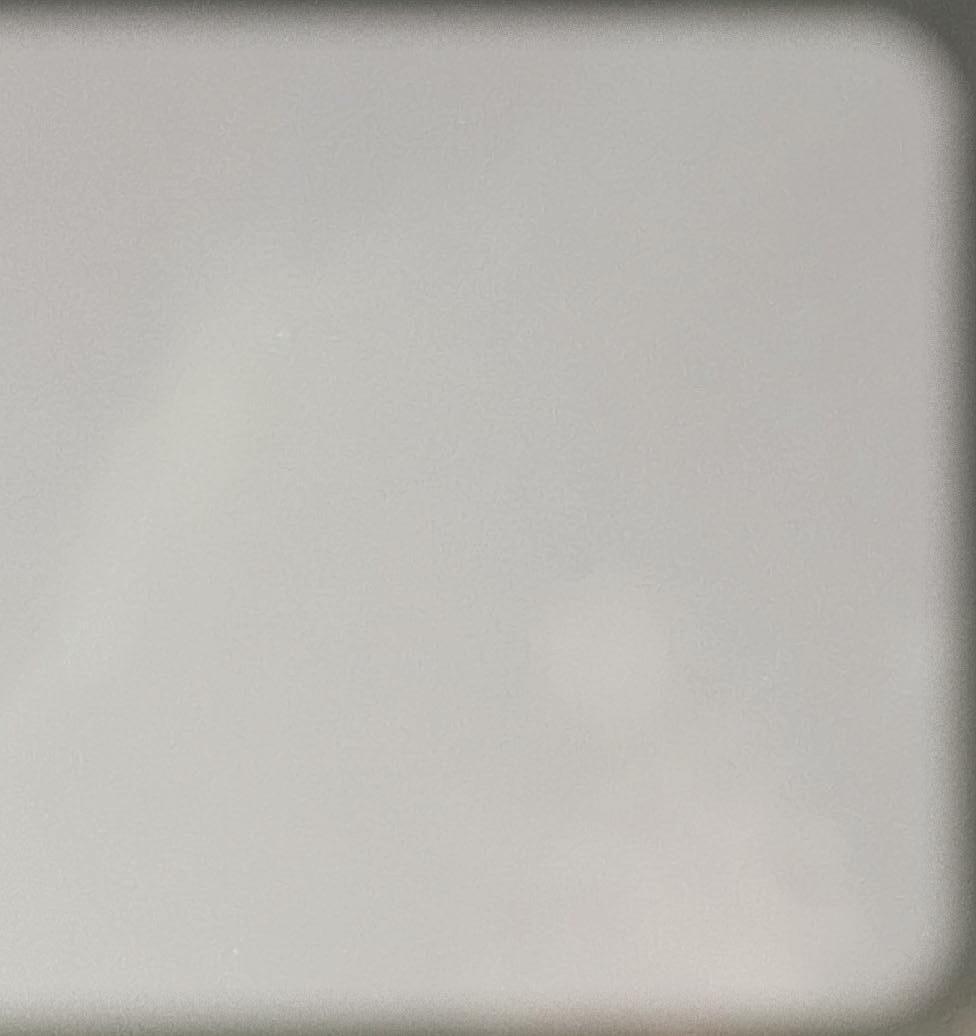

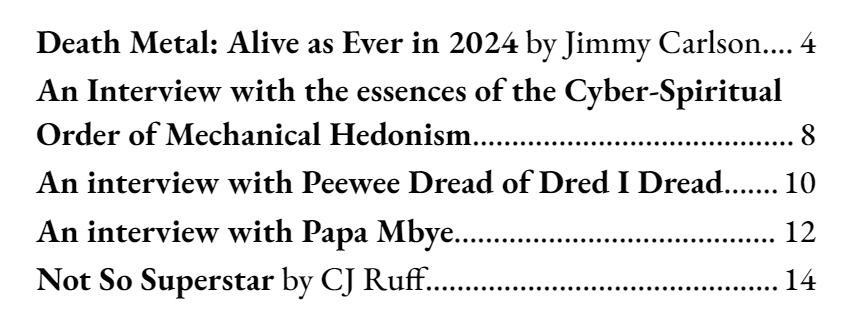
What an issue we have before us! A state of the union on death metal, exclusive interviews with Sproncert’s best and brightest, and ruminations on change, childhood, and Rainbow Kitten Surprise all await you in this edition of No Fidelity. This has been my first year as editor of No Fidelity, and I’ve loved getting to dive into the music scene on campus and learning more and more with each issue. Thank you to our bravehearted contributors for a fabulous year. See ya in the fall!
Also, check out the esteemed and talented student artists releasing music on the NoFi imprint! For more information, consult the back of your issue. Thank you to all of the bands that agreed to be interviewed!
If this is your first issue, welcome. NoFi is open to all students interested in or passionate about music, art, pop culture, and is open to all varieties of submissions. Email durdags@carleton.edu with inquiries, questions, etc.
[sofia durdag ‘25]

Death metal. DEATH. METAL. Oh boy! Like all metalheads, those six words, in that order, play on loop in my head about 80% of the time (when I’m not listening to some death metal, that is). If you talk to me and it looks like I enjoy being around you, just know that I’d rather be alone in my room breaking my neck to some blast beats and gurgles. The only problem with death metal is that, as far as many fans are concerned, it peaked before this article’s readers were born. All the genre’s most respected bands (Death, Entombed, Autopsy, Morbid Angel, Cannibal Corpse, Obituary, Cryptopsy, Suffocation, Nile, the list goes on) released their iconic material like 20 or 30 years ago, and the 90s can seem like the endall-be-all.


I am here to say that is not the case. The spirit of curiosity, the passionate search for heaviness which inspired death metal’s most iconic days has not died, and over the last two decades it has produced, with varying levels of recognition, some fantastic and innovative stuff. 2024 is no exception. After finding the new Hoplites record on rateyourmusic.com in January (see last term’s NoFi), I’ve been on a tear sifting through this year’s metal releases, and the quantity of good new death metal is overwhelming. I’ve been working on this article since the term started, and I’ve had a hard time finishing because great stuff just keeps coming out. But without further ado, here are my opinions on some highlights:
First is an eclectic album where Melbourne madlad Charlie Park does everything but vocals. Divine Laughter blends death, black, sludge, and post metal together all at once and adds a hearty helping of ambient electronic sections as well. That may sound like a lot, and it is, but instead of making a garish mess, this combination is smooth and naturally cutting-edge.



Innovative songwriting and production bring out Divine Laughter’s originality and ambition even further. The heavy sections are thick and stomping, full of low-end from all instruments (especially those rattling kick drums which I can’t believe are programmed). “Liquid Gold” and the title track seem right out of a “No Headbanging Challenge: Level IMPOSSIBLE” video. The softer sections on the other hand, be they clean instrumentals or ambient electronics, are intricately crafted and artful all on their own, which is rare for death metal. The real treat is when Park blends the soft with the hard, making a passionate, expansive, uplifting soundscape. No track here (other than the all-ambient “Birds and Machines in Brunswick”) is less than seven minutes, and multiple come in over ten, but I’m more than happy to sit back and watch it all unfold. I also have to shout out Miguel Mendéz’s vocals, which are brutal as hell but have a remarkable level of emotion behind them when needed. If there’s one complaint I have, it’s that some of the raw metal sections lack the same uniqueness and inspiration as the rest, but overall Divine Laughter is incredible.

SlimeLord - Chytridiomycosis Relinquished (March 8)
God, this album is disgusting. This album is so disgusting that it starts with the sound of honking geese. It then moves forward into a dripping, inexorable mass of “swamp death metal” (SlimeLord’s words, not mine) which leaves me more and more impressed the more I listen to it.


SlimeLord’s style consists of an unholy marriage of death-doom and technical death metal which has room for virtuosity, speed, and quick transitions, but also crushing slow sections and cavernous reverb. At first it came across to me as pretty boilerplate modern dissonant death-doom, but after hearing it a few more times, I saw that this album is insanely creative. Every song is a constant push and pull between creepy, slow, soft and savage, fast, and evil. The sound is great; the bass is like the ribbitting of some great, primordial toad, the guitars have the perfect tone to feel chunky or fluid depending on the need, and I can almost bile flying on my face from the vocals. The whole thing is suffused with this thick, putrid, alien atmosphere, as much a product of the songwriting as the otherworldly production. I’m straight-up addicted. And it’s about a fantastical war between amphibians and parasitic fungi? Holy crap.
Civerous - Maze Envy (March 22)
Fans of a certain bespectacled cantaloupe on the internet might have anticipated seeing this here. Civerous’ sophomore album is a titanic slab of death/doom which all fans of big, low riffs and evil atmosphere should try.


Maze Envy begins with two minutes of chilling tremolo/spiccato violins (like Divine Laughter, a lot of artful clean breaks/intros on this album) before going into “Shrouded in Crystals,” which might be my death metal song of the year so far. It’s stupid heavy, tightly played, oozing with spooky vibes, and the writing keeps me hooked all the way through. Those are really general descriptors, you’ll just have to listen to it to know more. The rest of the album continues in similar fashion, dancing between neck-snapping doomy sections, hellish, sometimes melodic, tremolo-picked riffs, and serene clean(er) sections. “Labyrinth Charm” will probably be the heaviest death metal song of the year. Sometimes it feels like Civerous play too much into the tropes of death/doom (to a greater extent than on Divine Laughter), but there’s not a bad song here.
Wow, just look at that band name and album title. If that makes you think, “hmm, that doesn’t seem like such a Christian-friendly album,” then you might want to avoid the lyrics. To my Jesus fans in the audience, know that I’m not including this to antagonize your religion (and the band didn’t record it for that reason either). For God-approved death metal, try the In Vain album which I’ve given a short review below.With that made clear, Antichrist Siege Machine are a 2-piece from Virginia who ascribe to the fringe, diehard, bitter niche of blackened death metal known as war metal.



Like a towel wrung dry and left out in the sun, war metal uses all the most punishing aspects of death and black metal to eliminate every drop of decency, and it has mostly sounded the same since 1989. On Vengeance of Eternal Fire, ASM have plenty of war metal’s trademark primitive tremolo-picked riffs, blast beats, and bestial howls. The primary vibe here is white-hot, blinding rage. At the same time, they make space for plenty of mid-tempo, hardcore-esque sections, which make the blasphemous walls of noise easier to digest and more fun. The songs are quick, only the opener “Son of Man” breaks the three-minute mark, but they’re long enough to leave an impression too. Far and away my personal best experience with war metal (and rym’s too apparently), never mind that that isn’t the highest bar.

When I pressed play on Coagulated Bliss for the first time, I expected to hear some regular Full of Hell grindcore and sludge metal, but instead I was severely wtf’d for 25 minutes. I honestly don’t even know if this album belongs in a death metal album list, but fuck it we ball.

Coagulated Bliss starts on “Half Life of Changelings,” a strange blend of metallic hardcore and blackened death metal which plays a lot with major chords? What the hell? The same spastic extremity continues for the rest of the album, although the death metal energy mostly drops out after song 2. “Fractured Bonds” gives industrial vibes with its electronic drums, “Bleeding Horizon” is a 6-minute hypnotic sludge metal stomp, and everything else is unpredictable hardcore/grindcore insanity, with lots more major chord play. It ends on a saxophone fade-out. After 5+ listens I still can’t tell how much of this I actually enjoy, but there are some real bangers here, and the fact that Full of Hell created more than pure novelty with this array of sounds is impressive. First listen is highly recommended.


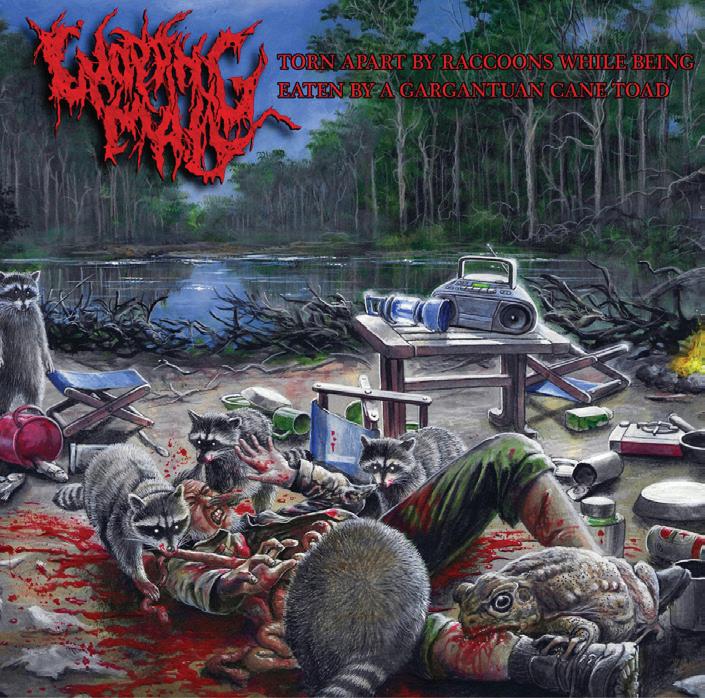
TAbRWBSEbaGCT is the second album by Chopping Mall, solo project of Milwaukee meathead Keith Dulemba. It’s only 19 minutes long, less than half the length of his 2020 debut, Mauled by a Magical Bear With Scalding Hot Liquid Cheese Spraying From Its Eyesockets. When I first looked at the track list on the new one, I giggled because every song title describes some outlandish way to die, usually at the hands of a woodland creature. My personal fave is “Pushed Into a Wood Chipper by a Big Gangly Moose.” The music is an accessible, no-frills take on deathgrind which fits plenty of fun riffs in each 1-2 minute song. The production value is way higher than I expected for this genre of music, and so is the variety of song structures throughout the album, both of which do a lot for enjoyability. It might not be revolutionary, but these kinds of what-you-see-is-what-you-get metal albums put a smile on my face, and the lyrics bring this album up another level, even if they took less than five minutes for each song (artist’s words, see the hilarious “about” section on Bandcamp). Oh and the cover art? Exactly what you think it is.

the cover art for TAbRWBSEbaGCT!

Tzompantli - Beating the Drums of Ancestral Force (May 17)
I thought I was done with this article, but then 20 Buck Spin put out yet another kick-ass death/doom record. What am I supposed to do, not review it?


Tzompantli is a project inspired by the culture of ancient Meso-America, which is reflected in the name, the Aztec word for a rack of skulls. They’re masterminded by Pomona, CA resident Brian Ortiz, but there’s a village behind the sounds on this album. Bandcamp lists six people credited for vocals, four for lead guitar, and three for folk instruments and percussion (with some overlap). You’d think with that amount of outside influence, the death/doom would get diluted a bit, but the music here is mostly true-to-form caveman shit. 70% of this album is one knuckle-headed riff after another, with lower-than-Satan death growls and primal drums pummeling along with them. The extra lead guitar and vocal muscle from the new contributors give it some more dimensions, but this part of the album is still super straightforward. The folk instruments are concentrated in the middle, with the atmosphere-laden “Tlaloc Icuic” and “Tetzaviztli.” Like the SlimeLord and Cave Sermon albums featured in this article, Tzompantli aren’t afraid to mix the metal and non-metal elements of their sound, and so these more experimental songs are individually significant songs instead of mere interludes. “Tetzaviztli” in particular is the platonic ideal of death/doom fused with indigenous sounds (with a little added black metal spice), and I frankly wish the band had put more of that energy in the rest of the album. As it stands, Beating the Drums of Ancestral Force has something for neanderthals and Aztec emperors alike.
Honorable Mentions:
Those are all the albums that I had the patience to give reviews more than a couple sentences, but there were plenty of others that I had to give a shout-out to.
Job for a Cowboy: Epic musicianship and songwriting on this tech death album, just not quite fun, virtuosic, or catchy enough to put it among the above albums for me.


Convulsing - Perdurance: Dissonant death with ambitious song structures and really cool, groovy riffs, just a little too rough around the edges
In Vain - Solemn: Even blend of progressive metal and melodic death with pretty Opeth-meets-metalcore singing and interesting Christian friendly lyrics (band is 3/6s Christian but doesn’t seek to identify as such). Some cool moments (including some saxophone and trumpet appearances) but each song could easily be 2 minutes shorter or more.
Replicant - Infinite Mortality: A tech death album with the same strange, dissonant, brutal riffs and creative songwriting as the SlimeLord album, but which lacks the atmosphere and distinctive highlights which bring that album to the next level.
Deicide - Banished By Sin: The Florida OGs are back with a whipping and (lyrics aside) easily -accessible death-thrash LP which doesn’t bring many new ideas but which proves these guys can still write a tight set of bangers. AI-generated album art is an oof tho. Same disclaimer as the ASM album if it wasn’t obvious.


no fidelity’s lead investigative reporters embark on an exclusive interview about faith, technology, and mysterious domes with ethan whiteaker, nelson serrano, will prim, and owen roth
SD: I first wanted to ask you guys about your decision to use a copy of babyteeth as your reading material.
OR: Well, we wanted the scripture to be in book form and we realized we had put in babyteeth already. It seemed like a good opportunity, good product placement.
WP: no one else would publish it. Everyone was too afraid, but babyteeth was not afraid to take the risk.
SD: Well, NoFi might have published it, but that’s neither here nor there. I wanted to ask you about your music influences right now.
EW: Right now our characters are influenced by The Thin White Duke by David Bowie. Also the primus aesthetics, the odd ball, off the wall characters. NS: A little post-rocky nonsense from specifically Nosferatu Man by Slint.
WP: Father Yod, too. Father Yod was a new-age health leader in California that started a cult rock band. We love him.
OR: I would also say Geordie Greep of black midi is a definite influence.
NS: Finally, literary-wise, Aleister Crowley.
SD: And for possible converts to the CyberSpiritual Order, could you tell us a little bit what you imagine for the future?
EW: You know, our creed has been disseminated into the world. We have passed away and you’re merely talking to our essences. We hope that the world takes note of our message, as it is the only correct way for salvation.
OR: We’re hoping that others will join us in the death of the physical and finding new life in the digital.
WP: All you need in order to join is a thirty dollar monthly subscription but the first month is free, but the second month is double, and then you pay by the year.
EW: Essentially it’s just a WiFi cost, that’s really the only subscription.
NS: We’re working towards crowd-funding a Joel Osteen AI to respond to our inquiries.
HB: That feels a little antithetical to your antitechnology stance.
OR: There’s nothing secular about that.
NS: That’s not secular at all. If it’s technology for a religious purpose, our Joel Osteen AI will provide—
HB: That’s my bad.
WP: We’re going to open our first temple in Dundas, in the next coming weeks. It’s gonna be in the Dundas Dome. We’re taking over the Dundas Dome and turning it into a temple.
SD: As someone who’s really excited about the ideas you’re introducing to Carleton, I wanted to ask about a specific passage from your creed. Let your womb incubate the energy of God. Forgo life and death and choose eternity. I was wondering what I could do to make my own womb a better incubator of God’s energy.
EK: I think it’s truly about renouncing secular technology. You have to cleanse your body and the area around your body.
SD: What’s the area around my body?
w
EK: Whatever you interact with.
OR: And the technology that you interact with. Also using your spirit to push secular technology towards religious purposes is a worthwhile cause.
SD: So I probably need to clear my cookies, or something like that.
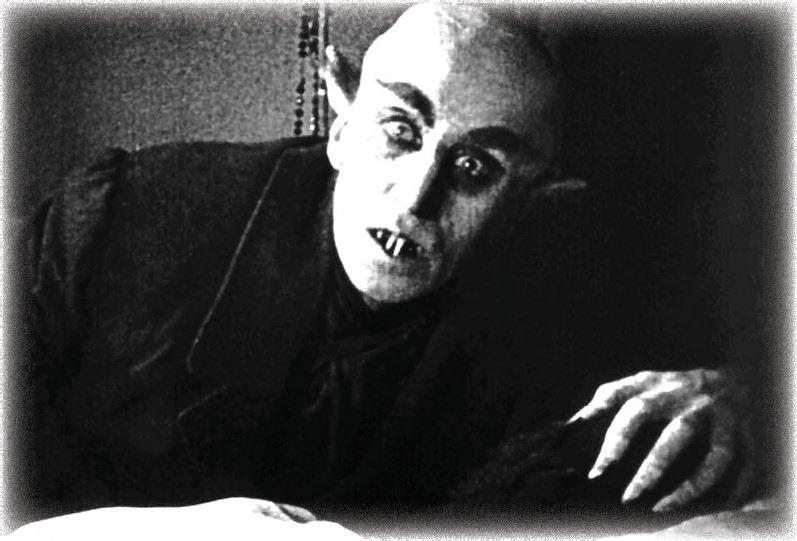

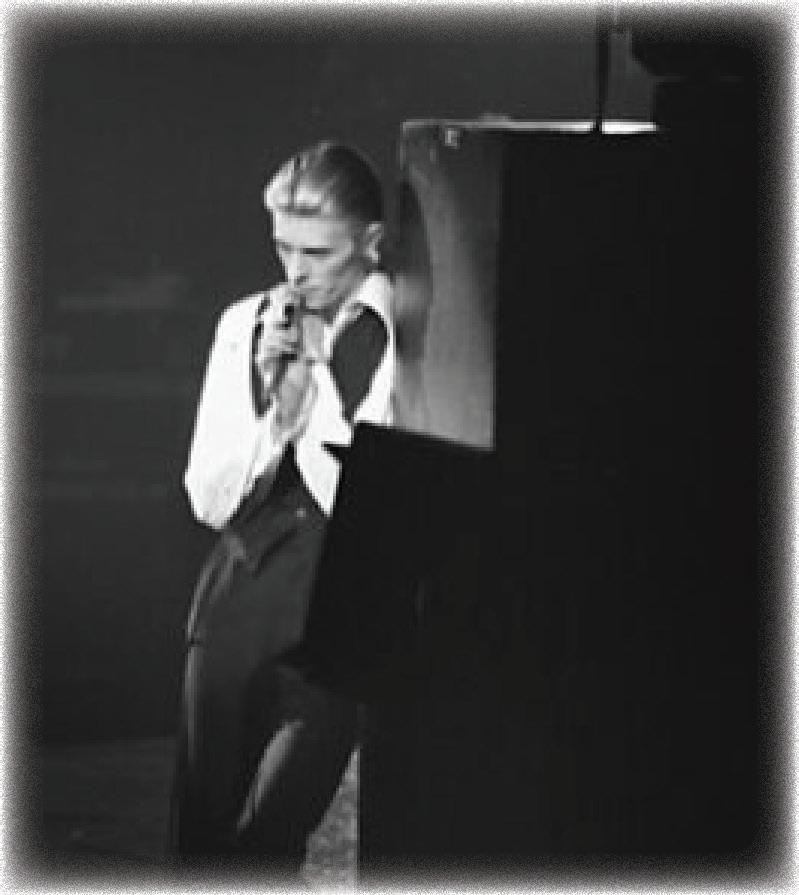


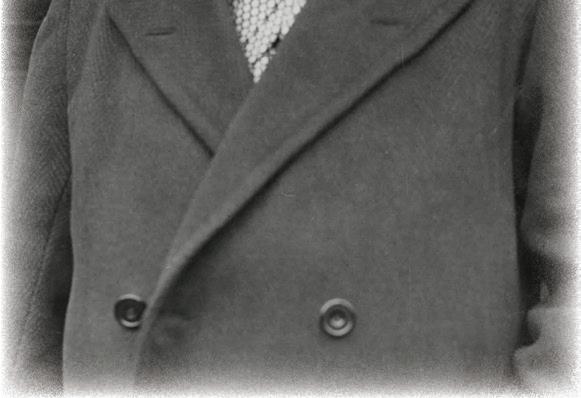
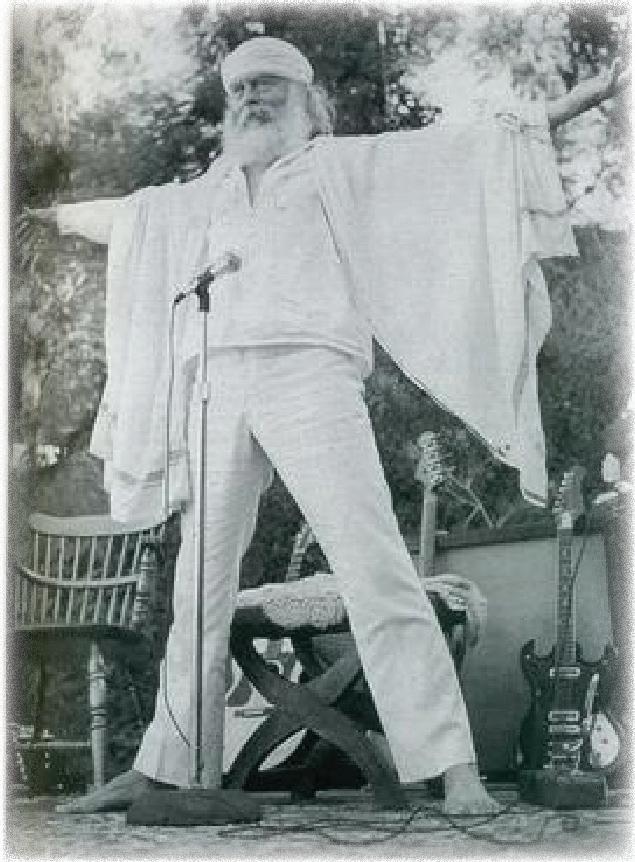
the lead singer of dred i dread, peewee dread, joins no fidelity for a sprawling interview on his journey to Minnesota, divine order, New Orleans---and so much more!
HB: So you ended up at Macalester for college?
I wouldn’t say ended up, they were my first, second choice. I was looking around for places that would be softer for weed. I didn’t know that they would legalize it. They wanted to keep me for a few more years, I guess! I came to Macalester back in 1992.
HB: How did Dred I Dread form?
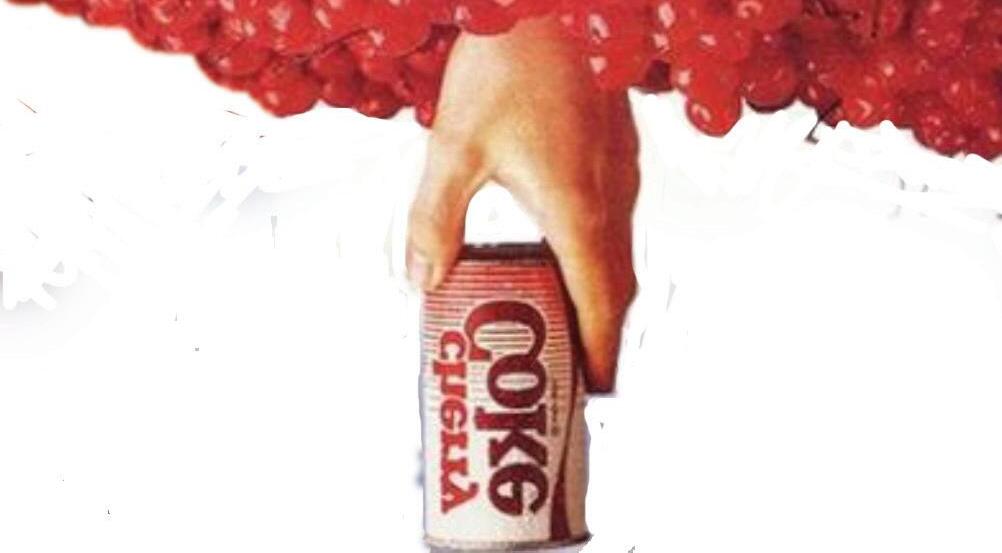
HB: Was that your first instrument?
Back in 1996, Rawle G [Dred I Dread band member] was playing with Junior Reid. My brother and I opened for Junior Reid at First Avenue, and Rawle said that he was coming to live in Minnesota. Rawle G came to Minnesota and said he wanted to start a band, did a bunch of interviews and said, “Yeah, he’s the only one that can sing. He has what I want! He wants to learn”. I’ve played music all my life, from violin to, you know, you name it. I’ve been writing songs since I could remember. So we got together, we did a recording for Prince that year when he came to town. We have a really deep background. My grandmother’s first cousin was Louis Armstrong. What we were able to do with Dred I Dread was go against the grain. A lot of bands at the time were playing Bob Marley-type music and we wanted to expand our horizons and give something for people to listen to that had other influences: Dennis Brown, Gregory Isaacs. We opened up for DMX in 1998 and then we were best reggae band in Minnesota in 1999, and then we were Minnesota Music Award winners for a couple years in a row, and then we won a songwriting competition. We were getting all these accolades, things went up, and then Dred I Dread morphed into doing more reggae, but still staying on the fringes. I don’t like to be pigeon-holed. I grew up doing classical violin.
Yes. I wanted to play the trumpet, but unfortunately when I was young I had asthma. I also had brain surgery at four months, and brain surgery at thirteen, and so it kind of dictated what I was gonna do. I had brain surgery again at thirty five. Even two days before my last brain surgery, I had a show on my dad’s birthday. It was crazy, my brother was mad, saying that I shouldn’t play. My father passed in Katrina, unfortunately, so it was super emotional. What if something happens? What if the brain surgery goes wrong? Obviously it didn’t go wrong. I did have some complications, but I’m still here. So we just put all that into the music. In our last album, Mount Zion, it’s all about Jamaica and Trinidad and Ghana, but one of the songs off of it was Mount Zion and it was all about bringing people to understand that sometimes there’s problems . . . but that we have to find a way to get through it no matter what, because that’s what life’s about. And that’s why I have my program, 40 Out of Poverty. I worked at the county for a while, determining eligibility for welfare programs. Eligibility for what? To be poor, so I could have a job? This is the creation of recidivism, this is ill. So I wrote a book in 2017, as a promise that I made to my mom: Ghettos to Medals: Rise of a Permanent Underclass, which pretty much encapsulates all the stuff we’re doing with music. And this goes into how we believe that everybody deserves opportunity and access. Dred I Dread means “fear my dreadlocks,” but if that’s all you can see, that’s fine, that is your perception, but not my perspective.
SD: Since you’ve been doing music for a long time, almost all your life, how do you think your sound and your relationship with music has evolved over time?
When I first started, I wanted to be famous, and wealthy, and say how many people can say I’m the best. But it becomes less of a competition and more of a mission. You just mature, just like when you’re a kid, a lollipop meant something to you, but now nobody cares. But at the same time I do understand reward, and how it impacts the brain, and how it influences your emotions and decision making. All that technology that I had just spit out was in order to understand how to repeat things that bring the rewards that we want. But in a much calmer, gentler way that doesn’t cause me to have to take anything. No more mine, mine, mine mine. In my mind, I know that it’s there, and accept it and acknowledge it that I’ll have it in divine time and divine order. So the music, everything kind of formulates in that same fashion.
[brief conversation about Pimento, a restaurant in the cities]
HB: And now your hot sauce is gonna be in Pimento.
We’re working on putting it all over, working on putting it around the cities. Helping non-profits that matter, like West Side Farmers Market, you know, I do a lot of support, I do a lot of music there, we put musical instruments out so that other people can come in and share their art. Even if you don’t have anything, come out and share your art. And that’s what I believe in. When everybody shares, nobody feels alone.
SD: What’s next for Dred I Dread? Do you have anything big coming up?
Yes. This summer we have a lot of shows coming up. We have my 50th birthday party show coming up.
SD: Happy early birthday!
It’ll be a lot of fun, if I still can take my shirt off, I’ll be happy. We’ll be all over, we are traveling a bunch. I’m kind of the ambassador of Dred I Dread, I take it everywhere I go. People ask me, “Are you gonna Dred I Dread tonight?” and I say, “Of course I will!”
HB: If I can wiggle in one last question, I’m curious if on the reggae scene or the Minneapolis scene more broadly, if there are any bands that you’re excited about?
The reggae scene, not as much, as much as the older reggae scene. The scene that I grew up with twenty, thirty years ago—well, it’s not that they’re not great musicians, they’re just not creative artists. They don’t write their songs. They aren’t doing a lot of writing, the majority of stuff is copied, cover songs. You shouldn’t do cover songs, and if you do a cover song, interpret it. When I was a kid, I grew up in New Orleans. I keep saying that, but it’s so important. I was in New Orleans last at my grandmother’s funeral, I went down to the bar my father used to take me to. Back when I was a kid, it was Ernie K-Doe’s place, and Ernie K-Doe has a song called Mother in Law that was a big hit in the fifties, so he built this lounge called Mother in Law Lounge. And at this lounge I met Annette K-Doe, his ex-wife, who had inherited it when he passed. I used to go there and eat and drink—well, I had cherry Cokes and french fries—but my dad drank, and I went there and performed with my cousin, who’s a Grammy-winning trumpeter Leon “Kid Chocolate” Brown. I have great music in my family. I went there, and he said, “Dread, you gotta come play and bring all your stuff, your wares. And you can smoke cannabis there.” It was awesome!
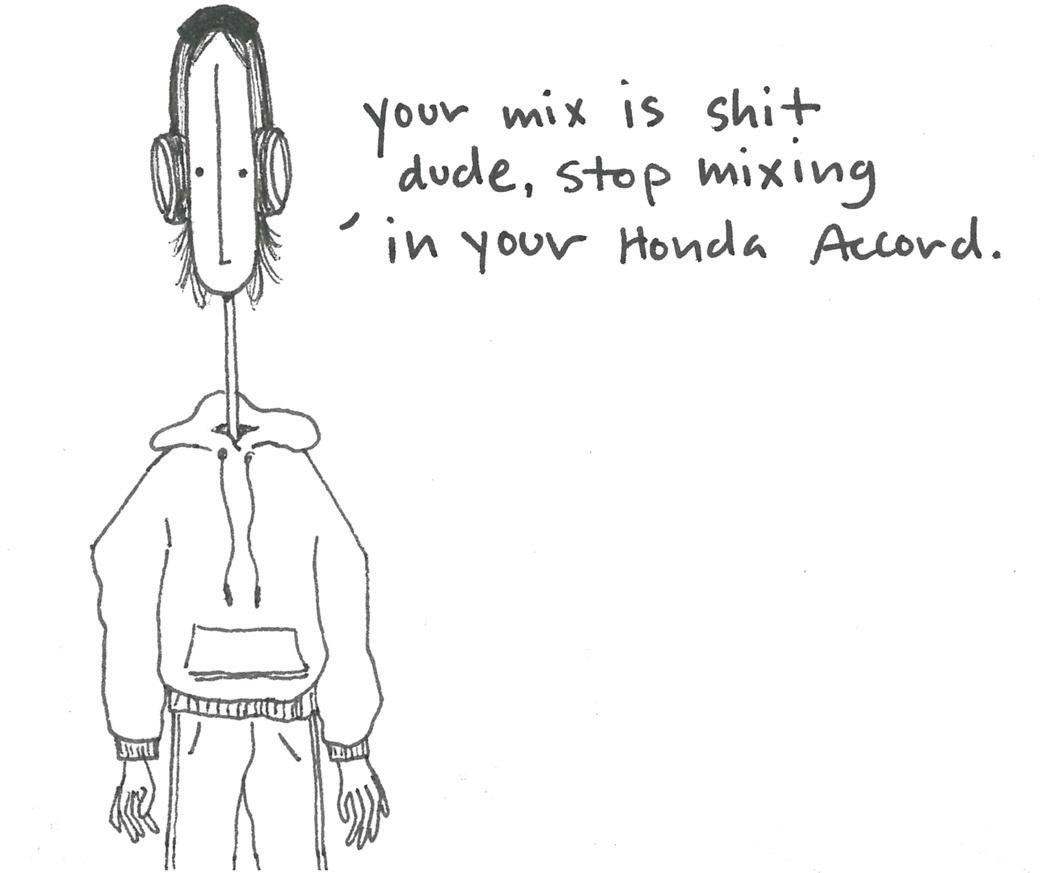
nofi learns papa mybe’s true feelings about the twin cities music scene, soundcloud, and bad art.
HB: How’d you get into music and start the project you’re on now?
PM: I started as a visual artist, as a painter, graphic designer, I do short films. That was my interest, and then during the pandemic I started playing around with music and it snowballed into me getting a manager and then making demos, making a project, and playing shows. I really love music, I feel like through different art forms it feels like the same thing. Making music feels just like drawing.
SD: We’re curious, who are some of your musical influences right now?
PM: A lot of my friends. I feel like MN sound in general, what’s happening right now with a lot of my contemporaries. I feel like a lot of people right now are making whatever they want without any constraints or limits. It’s lending itself to a whole new sound that I’mreally excited for the world to hear. Lately I’ve been listening to a lot of Prince and Michael Jackson, a lot of Amy Winehouse. Also a lot of obscure Soundcloud shit that has three plays. That’s where the thick of it is, the real shit.
HB: We talked to the lead singer of Dred I Dread and he actually recorded with Prince. We didn’t get all the details, but it was cool.
SD: Yeah, we need to transcribe it first. Do you have any favorites on the Minneapolis scene right now?
PM: Oh yeah. I love my friends, like Huhroon and FruitPunchLoverBoy, Kinfu, Zak Khan, SoulFlower, oh … freak—
SD: You can swear in this, don’t worry.
HB: Do you still work with Flavor World at all?
PM: Yeah, they’re amazing. They’re doing some really cool collective shit right now. I feel like Minneaplolis is really coming together and building some shit right now. People who are nineteen to twenty-seven. Not to make twenty seven the cutoff, but . . .
HB: What’s next for you as an artist?
PM: I’m going to be playing a lot of shows. I’m putting out an EP in August, and I’m just making a bunch of new music and I’m helping to produce a lot of my friends’ music. I’m just excited for everything to come out. I don’t really know what’s next but good things.
HB: Last question, but did you always know that you wanted to do art and music?
PM: I always knew I was gonna be an artist, but music just came along the way. It’s part of the journey.
HB: Was there ever a point where you decided that you were really going to focus on music? Or was it always part of the vision?
PM: I think this year is the most affirmed I’ve ever felt in really going for it, because I feel like all art is part of the conversation, good art, bad art. So whichever one I’m making, I feel like they’re both just as important. I’m just trying to contribute to the conversation. And what’s the conversation? I don’t know. I’m talking very esoterically right now.
HB: That’s perfect for the magazine.
SD: Yeah, this will play really well.

My very first Rainbow Kitten Surprise song was “All That and More (Sailboat)” circa 2017-2018, around seventh or eighth grade. My older sister introduced me to it, as the source of all my best music at the time. (The song has the fuck word in it; I warn you because one time my sister forgot and played it in the car while babysitting.) It was the only song of theirs I knew for several years, though by that point their first three albums—the only ones they had out until this month—had already been released.
The next song was “Mr. Redundant.” I suppose it came on my Discover Weekly, or maybe from my sister again. This was around sophomore year of high school, which I remember strongly because my beloved geometry teacher was a big fan of pointing out redundancies, and a couple girls in my class and I told him he should listen to that song. I was never friends with those two, but they told me I ought to listen to more of their music, and gave me the push I needed to dive all the way in.
The rest came in sometime after that. Across the three albums—Seven + Mary (2013), RKS (2015), and How to: Friend, Love, Freefall (2018)— nearly all the songs accumulated onto my playlists over the years, guiding me down pandemic sadtracks and soundtracking my coming-of-age between the mountains of North Carolina and endless wooded backroads in my home state of Maine.
When I got a CD player, one of my first CDs was Seven + Mary.
At this point, I know the whole album back to front, and there is not a single song worth skipping on there.
RKS has struggled lately. Not in popularity—much to my dismay, “It’s Called: Freefall” blew up on TikTok and suddenly concert tickets got really expensive—but in personal matters. On social media, they’ve cited mental and physical health issues, and their lead singer came out as trans somewhere in the past six years since How to: Friend, Love, Freefall. They’ve canceled at least two tour in the past two years, crushing my heart and giving me a ticket refund I didn’t want. They’ve released a few singles over the years, but nothing crazy.
All this is to say that their announcement a few months ago for their first album in six years, Love Hate Music Box, meritted all-caps texts to several of my friends and my sister. But the singles they released prior to the album were decidedly underwhelming—to quote one Instagram commenter, “in a world full of ‘Superstars’ there is only one ‘Cocaine Jesus.’” RKS is this generation’s finest indie poet. Their songs are meant to be danced to and cried to and their albums listened to straight through. To be clear, this hasn’t changed with Music Box, which dropped today as of writing this, May 10, 2024. It’s a startling 22 songs, clocking in at just over an hour, perhaps to make up for the six-year gap since How To released in 2018.
There is an impressive cohesiveness to the twentytwo songs that displays a real mastery of the art of album-creating, and a weight that comes with all the band has endured over the past six years.
What’s been lost is their sound. Much like the Bellas in Pitch Perfect 2, the band doesn’t seem to have a firm grasp on who they’ve become in the past six years, and the strength of their originality has vanished. Their lyrics, while not terrible, are certainly lacking when put up next to their older works. Gone are the puns, the word play, the double meanings. RKS used to sing in a hypnotic manner, the kind of almost rap-like lyrics that made you feel cool when you knew them and the other kids didn’t.
They’ve turned more pop, more mainstream. They’ve kicked out their bassist, Charlie Holt, in a messy breakup. Longtime fans are upset both over the loss of Charlie and the loss of quality. We aren’t quite sure how to react to these big shifts, and many of us feel let down.
RKS is not the same band they were six years ago. They’ve lost their lyrical genius. They’ve lost any innocence they still had after 2018. They’ve suffered and grown and like it or not, this is the new Rainbow Kitten Surprise. Despite my own emotions around Music Box, my long-standing love for them cannot be shaken by the changes they’ve endured. I can’t blame them; I myself turned from a seventh grader to college first year, from age thirteen to nineteen, between How To and Music Box. My entire teenhood passed by in their absence, though barely a week went by without them, even when I went without my phone for up to four months at a time. I am grateful we still have them as a group, changed as they may be, and I am grateful we still get new music. I mourn the loss of the RKS they were, but I am slowly warming to the RKS they’ve become. We all change. It’s better than staying the same.


